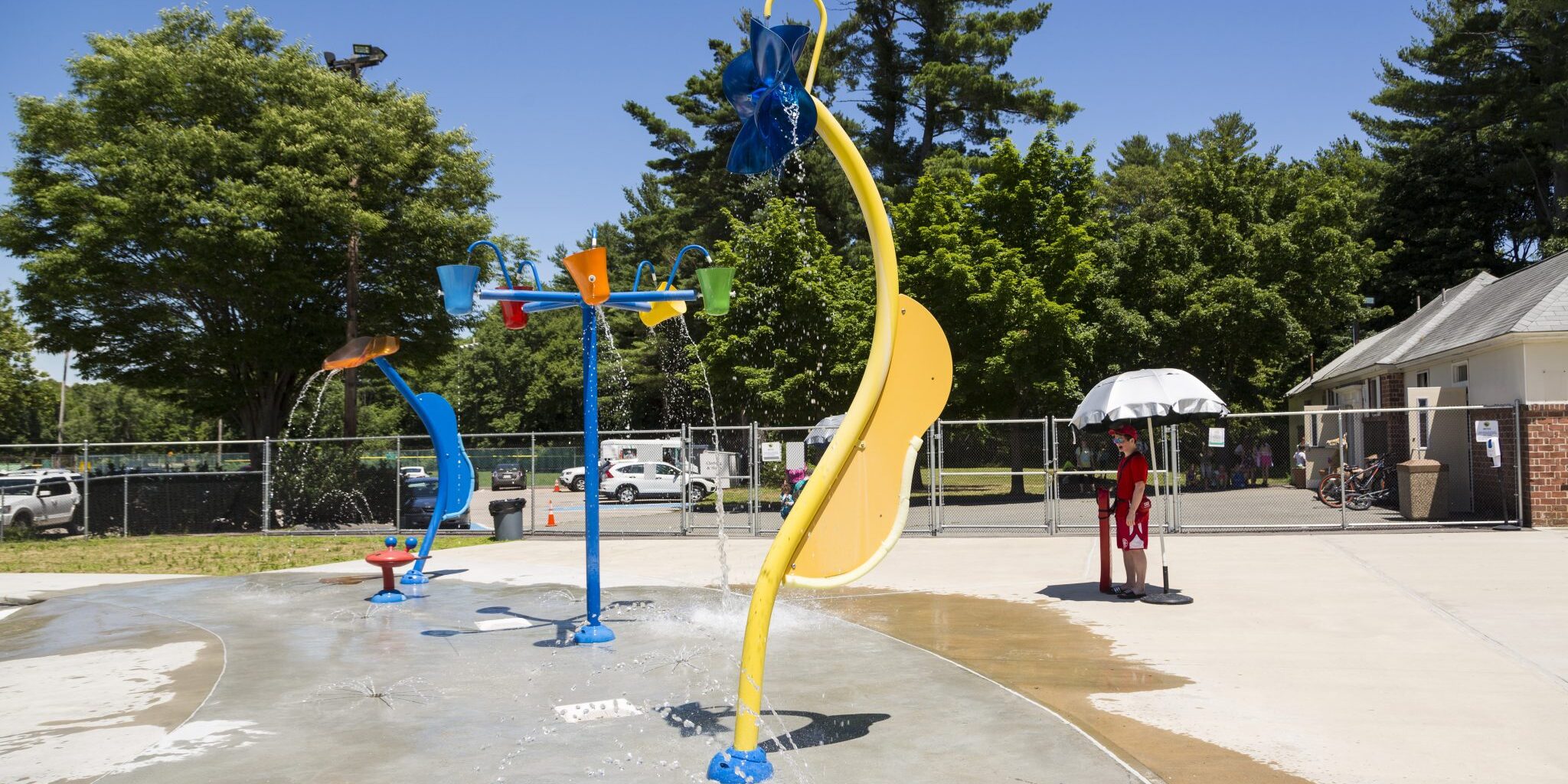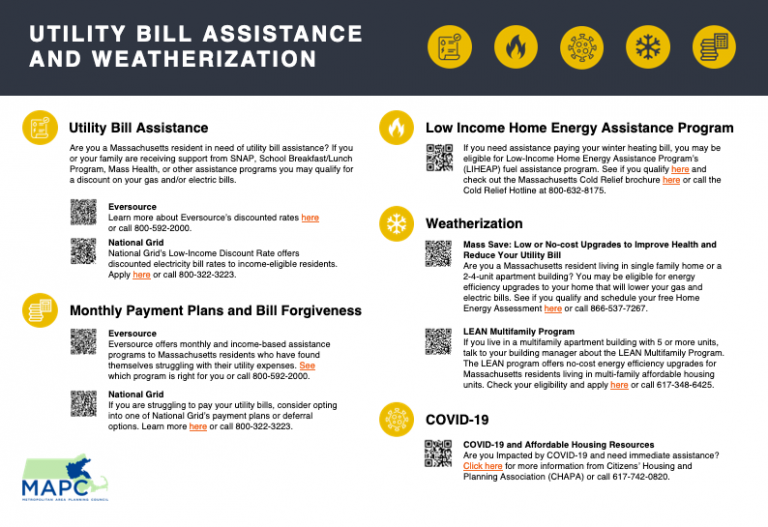
Extreme Heat Resources
Extreme heat can be deadly, and it disproportionately impacts communities of color and low-income residents. It is increasingly important for municipal governments to tackle urban heat island effects and ensure equitable access to cooling solutions for residents, particularly in environmental justice communities.
MAPC has compiled a list of resources that may be helpful to municipalities who want to help residents stay cool and healthy this summer. This includes a communications and social media toolkit that outlines how to prepare for heat events, what to do during heat events, and best practices to help you get the word out!
We will be updating these resources throughout the summer, so please check back for updated information.
Resources for Municipalities and Community-Based Organizations
The suggestions below do not represent an exhaustive list, but reflect what we have learned from conversations among municipal staff and staff from community-based organizations. We expect that you will be working community partners to identify the strategies most appropriate for your community.
Indoor/In-Home Cooling
- Distribute Cooling Care Kits that include information on heat-illness prevention, cooling resources, and utility and weatherization assistance, heat stress first aid materials, water, hand-held and wearable cooling equipment, etc.
- Distribute fans, air conditioning units, and wearable cooling devices to residents without access to in-home cooling and least able to leave home for their cooling needs. Some wearable cooling devices can function without use of electricity, in case of a potential power outage. Some municipalities have worked with local nonprofits to help them with distribution.
Outdoor/Outside of Home Cooling
- Deploy temporary, movable shade and misting equipment for people who are standing in line at businesses, and food distribution hubs and in shared spaces outside affordable and public housing sites. Some communities have also considered setting up mobile spray features to increase the availability of outdoor cooling.
- Set up hydration stations or distribute free water bottles in public areas to remind people to stay hydrated. Some cities have procured water trucks to distribute water in large events and can be utilized during heat waves.
- Promote local public cooling centers, public swimming pools, and spray decks for people who do not have the ability to cool down at home and those who are unhoused. Utilize text message alerts, phone applications, billboards, and transit station advertisement boards to maximize your reach.
Communication
- Advertise and communicate low-cost, low-tech indoor cooling options, such as closing windows and blinds during the day, creating nighttime cross breezes, drinking cool water before feeling thirsty, and wetting clothing. Communications may occur over video, flyer, social media, word of mouth, etc.
- Encourage mutual aid, check-ins, and information sharing by collaborating with and providing information and training to trusted messengers in the community. Information may cover heat-illness prevention, cooling resources, utility and weatherization assistance. Trusted messengers may consist of caregivers, staff and volunteers from neighborhood and community groups, religious organizations, and mutual aid networks.
Guides
FEMA – Preparing for Extreme Heat
- General guidance around preparing for extreme heat
National Integrated Heat Health Information System
- Collection of heat health tools and products to help communities prepare for heat events and managing risks
Extreme Heat Readiness Guide (Ready.gov)
- Guides for what to do before and during extreme heat events
Climate Vulnerability Analysis
MAPC's Climate Vulnerability Analysis shows which areas in our region are most vulnerable to extreme heat. Use our Vulnerability Map to identify vulnerable areas in your community.
Equipment Resources
The Northeast Homeland Security Regional Advisory Council (NERAC) Regional Cache Program makes equipment available to communities in the Northeast Homeland Security Region for a minimal daily fee. Resources available from sites located in Beverly, Framingham, and Lexington that could be used during heat emergencies include inflatable shelters, electronic message boards, generators, and shelter trailers. Municipalities outside of the NERAC region will be required to sign a Subscription and Loan Agreement Form before borrowing. Visit NERAC’s website for more information about these resources.
CDC Guidance
CDC Guidance on Cooling During Extreme Heat Events
- For Federal, state, local, and tribal jurisdictions in the United States considering opening or operating cooling centers during the COVID-19 pandemic
- Includes screening people for symptoms, social distancing, air filtration, cleaning, communication, and PPE for people using the cooling center.
- Read the guidance.
CDC Heat and Health Tracker
What Other Municipalities are Doing
Resources for Residents
These resources are specific to Greater Boston-area residents, but may be relevant in other regions and useful as a template for municipalities developing their own informational materials for residents.
Utility Costs & Air Conditioning
General Tips for Cooling & Heating
Massachusetts Extreme Heat Safety Tips
General guidance around heat related illnesses
CDC's Extreme Heat Guidance
General guidance around heat related illnesses and specific guidance for vulnerable populations, includes template social media graphics and infographics
Stay Safe in High Heat
Hot and humid weather challenge your body's ability to cool itself. You or someone you care about may experience a heat-related illness if you heat up too quickly, or if you lose too much fluid or salt through dehydration or sweating.
The Centers for Disease Control and Prevention provides a list of warning signs and symptoms of heat illness, and recommended first aid steps. Some of these symptoms and steps are listed below.
Call 911 in an Emergency
Always call 911 in a medical emergency, including heat stroke and heat exhaustion.
Symptoms:
- High body temperature (above 103°F)
- Hot, red, dry or moist skin
- Rapid and strong pulse
- Possible unconsciousness
What You Should Do:
- Call 911 immediately — this is a medical emergency.
- Move the person to a cooler environment.
- Reduce the person's body temperature with cool cloths, or even a bath.
- Do NOT give fluids.
*If treatments for heat exhaustion not provide relief after 15 minutes, call 911 because heat exhaustion can lead to a heat stroke if treatments don’t provide relief.
Call 211 for Emergency Relief Information
Mass 211"connects callers to information about critical health and human services available in their community". If you need information about cooling centers or other emergency relief, but you are not calling about a medical emergency, call 211.
Prepare
- Check the weather regularly to be prepared for especially hot days.
- Install air conditioners snugly, and ensure ducts are sealed and insulated.
- Use light-colored shades or blinds to reflect light away from your home.
Boston has more guidance on how to prepare for high heat.
Caring for yourself
- Stay well-hydrated.
- Carry a water bottle and refill it regularly.
- Pay extra attention to how you're feeling.
- Pace yourself or rest if you are feeling tired.
Caring for others
Check on your neighbors to make sure they're doing okay. People have saved lives in heat wave by taking a moment to check in on neighbors.
Make sure not to leave pets or children in cars, even if the windows are open. Cars overheat quickly on hot days.

